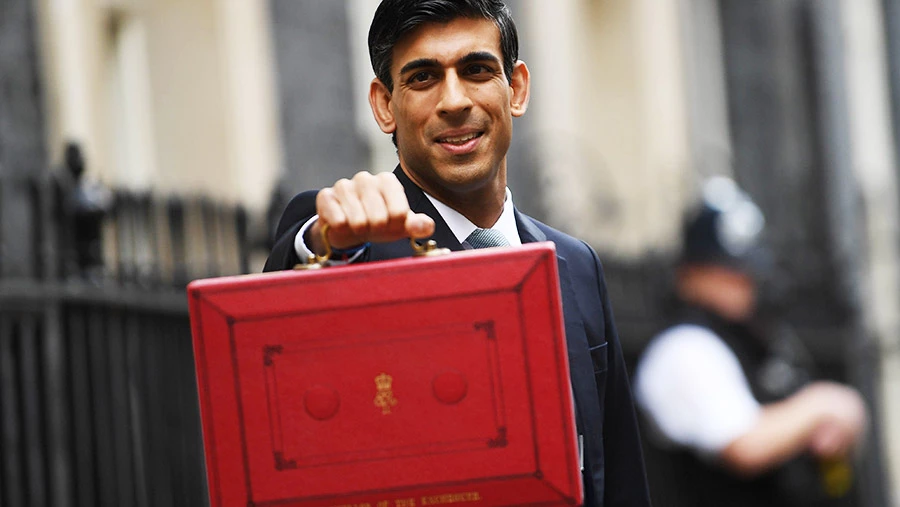
Partner Article
Budget 2021 - Great expectations?
Preparing the UK’s 2021 Budget was no doubt a tricky ask, with a year of Covid-related disruption, manifesto promises, and a commitment to do ‘whatever it takes’ to support the economy, jobs, people and businesses. PSG Wealth Management MD, Paul Gilsenan, looks at what it could mean for the year ahead.
The Chancellor, Rishi Sunak, unveiled a three-step plan encompassing the aforementioned commitment to doing what was needed, a promise to fix public finances in an open and honest way, and laying the foundations for a future, post-pandemic, economy.
Early announcements included the extension of furlough and self-employment support schemes through to September, with the majority of lockdown rules expected to come to a close by the end of June. This will no doubt come as reassurance (although some may question if this means June is still a viable target).
Further relief for some of the industries most impacted by the pandemic came in the form of a freeze on fuel and alcohol duties, as well as VAT and rates relief extensions. Further support was offered with nearly £400m to help arts venues in England, as well as a £5bn in restart grants for businesses forced to close to comply with lockdown rules.
The extension of the Stamp Duty Land Tax cut until the end of June, and the new mortgage guarantee scheme delivering mortgages with the need for only 5% deposits, will both be of interest to those looking to move or buy their first home.
For those saving for retirement or about to start drawing down on their retirement funds, we have seen a freeze in the lifetime allowance of £1,073,100 until April 2026. This year’s inflation-linked increase was going to be less than £6,000, so that isn’t really too much of a worry. However, over the next five years, we would have hoped to see an increase up to around £1,200,000, which is significant. For those who are not at the lifetime allowance, there is no impact; but for those with pension savings at or over this value, careful planning will be needed to minimise any impact, at least in the short term. We do hope that after five years, we will see further increases in line with inflation.
For company owners, the proposed increase in the Corporation Tax rate to 25% from 1 April 2023 may be of concern. However, this rate will only apply once profits hit £250,000; and if profits are below £50,000, the current 19% rate will continue to apply. There will be a sliding scale for profits in-between.
There are, however, some new provisions for all businesses to allow losses to be carried back for three years and a new “super deduction” capital allowance of 130% for companies on qualifying capital expenditure. This super deduction will, in effect, allow companies to cut their tax bill by up to 25p for every qualifying £1 they spend.
Finally, for the North East, the announcement of a new Treasury campus in Darlington, and Teesside named on the list of 8 freeports to be built, there was extra reason to be hopeful for life post-pandemic.
As with every Budget, the real impact may take weeks to be felt, the 1% pay rise for NHS workers has already emerged as a hot button issue, but whether Rishi Sunak’s plan delivers on its promise, the soundest advice is to keep calm and carry on looking at long-term plans, with a trusted advisor, to achieve your financial goals.
This was posted in Bdaily's Members' News section by PSG Wealth Management Ltd .
Enjoy the read? Get Bdaily delivered.
Sign up to receive our popular morning National email for free.




 test article 123456789
test article 123456789
 hmcmh89cg45mh98-cg45hm89-
hmcmh89cg45mh98-cg45hm89-
 test456456456456456456
test456456456456456456
 test123123123123123123
test123123123123123123
 test xxxdiosphfjpodskhfiuodsh
test xxxdiosphfjpodskhfiuodsh
 Savour the flavour: North Tyneside Restaurant Week returns for 2024
Savour the flavour: North Tyneside Restaurant Week returns for 2024
 Six steps to finding the right buyer for your business
Six steps to finding the right buyer for your business
 Stephen signs off on a special night
Stephen signs off on a special night
 Life’s a Peachaus: Gillian Ridley Whittle
Life’s a Peachaus: Gillian Ridley Whittle
 Making a splash: Phil Groom
Making a splash: Phil Groom
 Making workplace wellbeing a priority
Making workplace wellbeing a priority
 A record of delivery, a promise of more: Ben Houchen
A record of delivery, a promise of more: Ben Houchen